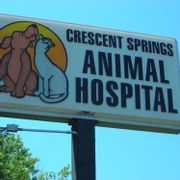Microchipping 101: What Is It & Why It’s Important

Just like you, the staff at Crescent Springs Animal Hospital in Kenton County, KY, is devoted to the health and happiness of your dog. These caring professionals know your canine companion is more than just a pal — it’s a true member of the family. As such, they strongly recommend having microchipping performed on your pet. For many reasons, it’s something that can prove truly essential to your dog’s health and well-being.
But what is microchipping? Is it dangerous? Why have it done? Let’s take a closer look at both the device and the process:
 Top-Notch Technology: The chip itself is essentially a bead about the size of a grain of rice that’s implanted between the dog’s shoulder blades. This small glass device contains a microchip, a mini-radio transmitter, and antenna. By using a special scanner, one can access all the relevant medical and identification information for the animal.
Top-Notch Technology: The chip itself is essentially a bead about the size of a grain of rice that’s implanted between the dog’s shoulder blades. This small glass device contains a microchip, a mini-radio transmitter, and antenna. By using a special scanner, one can access all the relevant medical and identification information for the animal.- Considerations About The Procedure: By and large, the process of surgically implanting the chip is completely safe — many vets will even insist that anesthetics are not required (though, as a practice, it’s a good idea to ask for it to be used). As with any implantation, there is always a very small chance that the dog’s body will reject it or have an inflammatory response, but documented cases of this are extremely rare. Sometimes, the chip will migrate to other parts of the body and need to be repositioned.
- Why It’s A Good Idea: Ultimately, most every animal clinic professional will tell you that microchipping is an essential procedure. In fact, if you’ve adopted your dog from a humane society or rescue shelter, it’s likely that there’s already a chip implanted. A major benefit of the microchip is that as long as you register it, it contains identification and medical information, which can prove absolutely essential. Every vet or kennel can easily get all of this material when necessary, and it’s especially prudent to do if your dog is prone to running off.
Ultimately, microchipping is great for both you and your furry family member. If you’re in the Crescent Springs area, there’s no better animal clinic to get the procedure done than at Crescent Springs Animal Hospital. To learn more about this procedure, as well as other veterinary services offered here, visit them online or call (859) 331-6608 today.
About the Business
Have a question? Ask the experts!
Send your question

